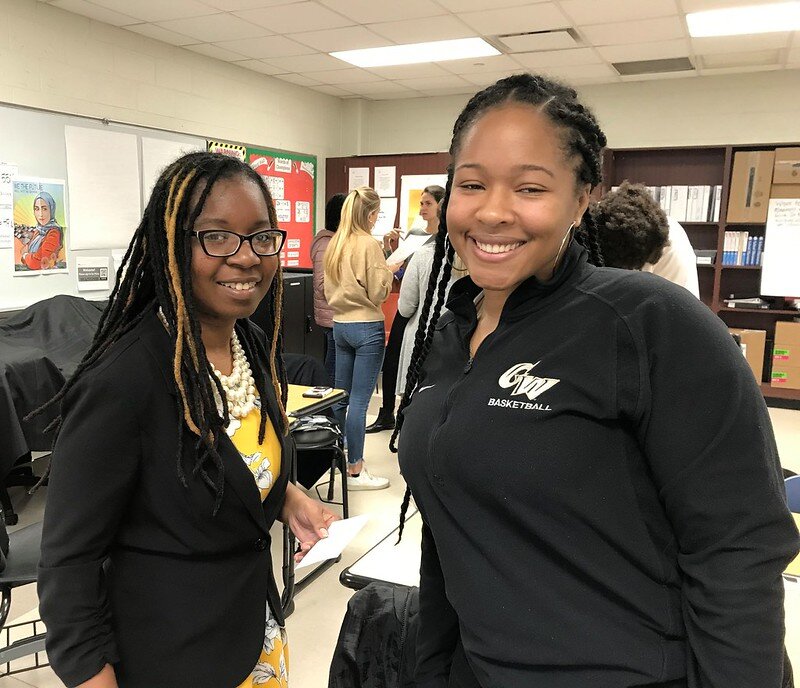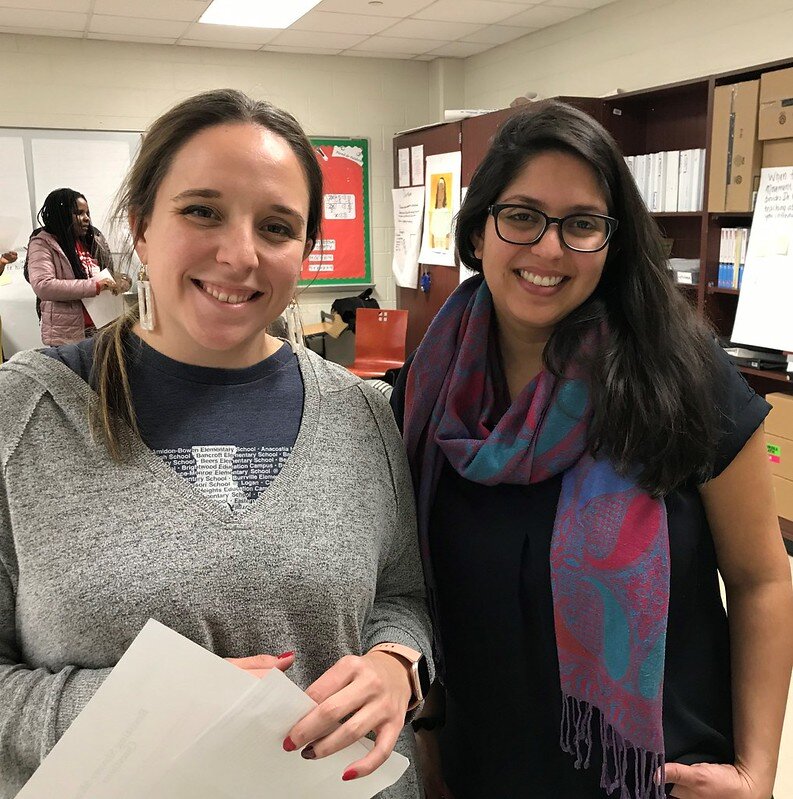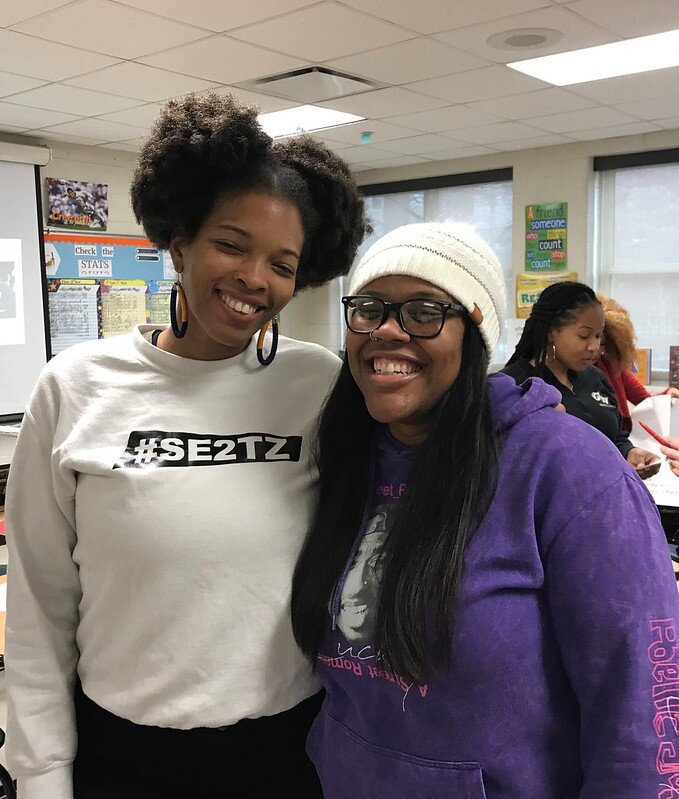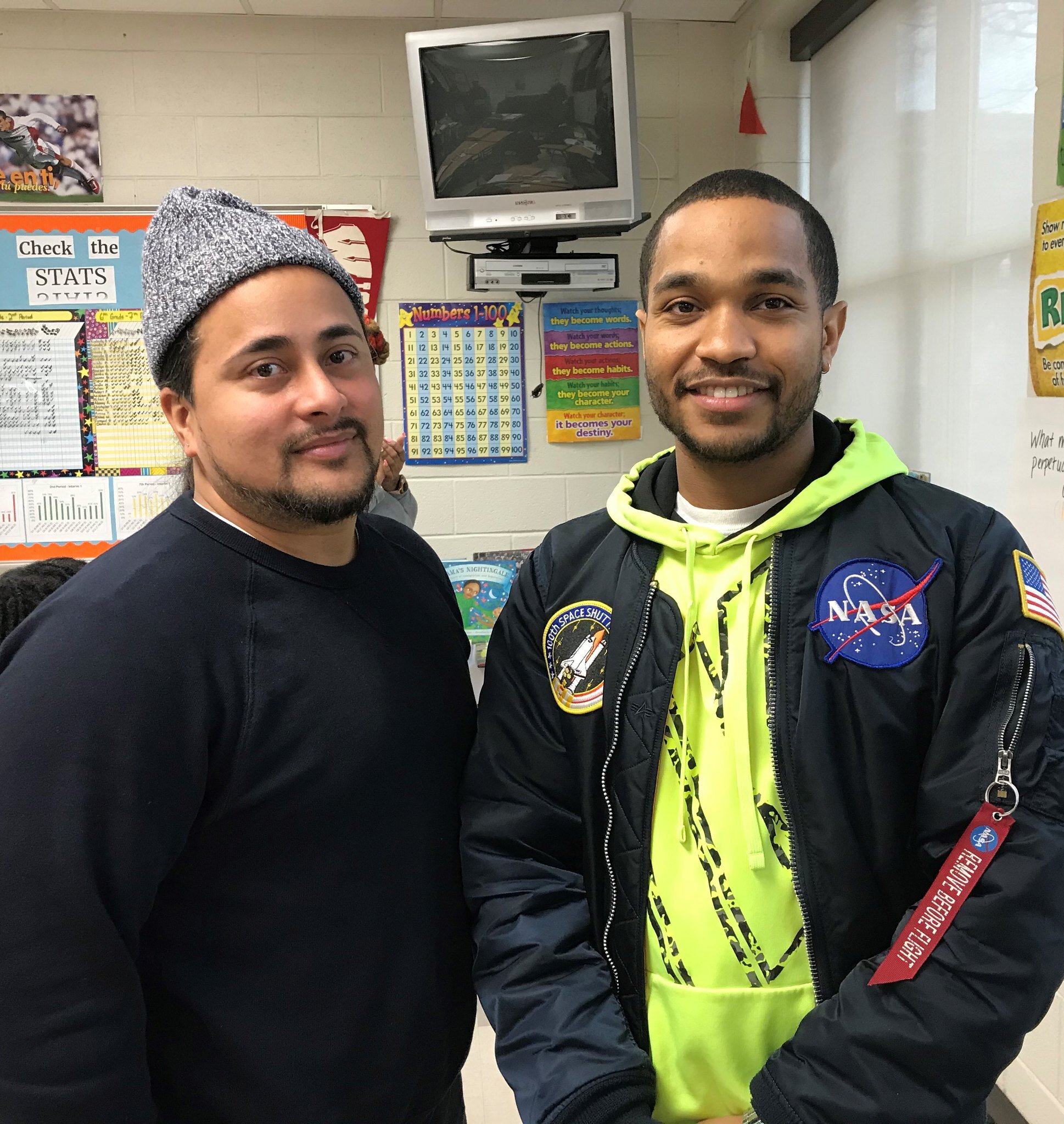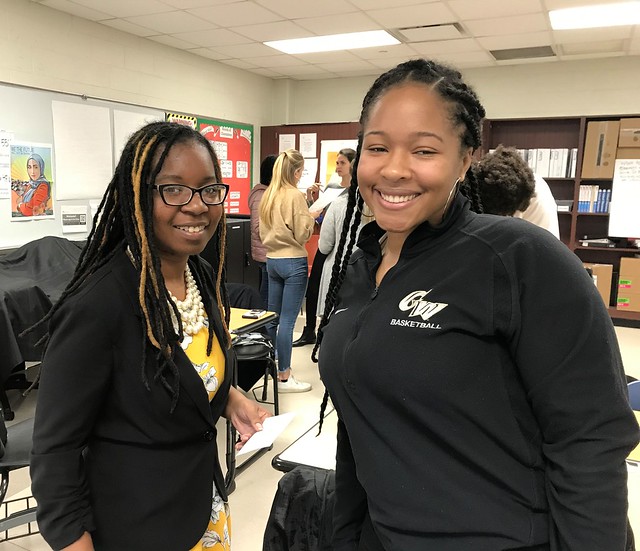Teaching Powerful Lessons on the Past and the Present: Teaching for Change Workshop for DCPS
What are some tough conversations that you’ve had with students about racism, history, activism, and different perspectives on current events? This is one of many questions Teaching for Change staff reflected on with District of Columbia Public Schools 3rd through 5th grade teachers in a professional development workshop on Tuesday, January 28, 2020.
Staff from Teaching for Change, Deborah Menkart and Cierra Kaler-Jones, along with Raphael Bonhomme, 3rd grade teacher at School Within School at Goding facilitated the session. They were joined by Robyn Harper, the new DCPS Equity Coordinator, Equity Professional Development & Strategies, who welcomed the 15 teachers and provided the norms for the session from COURAGEOUS CONVERSATION™.
Teachers were invited to engage in a gallery walk activity, an opportunity for self-reflection and shared learning from the expertise in the room. Sample questions included,
When teaching about the Civil Rights Movement, who have you introduced besides Dr. King and Rosa Parks? When teaching about Latinx history, who have you introduced besides Cesar Chavez or Dolores Huerta?
Many educators shared historical figures such as Malcolm X, Alvin Ailey, Claudette Colvin, Frederick Douglass, and Langston Hughes. One educator mentioned,
I like to share personal stories or real stories of everyday people who have fought oppression.
In response to the question that opened this post, educators dug deeply into their experiences in the classroom and difficult conversations they had with students. They wrote on their post-it notes that some of the discussions included,
History of negative perspectives around Black features, such as hair and complexion - challenging negative beliefs about natural hair and dark complexion
How slavery was a ruthless and terrible institution, the harsh realities of the slave trade
Post enslavement systems of oppression that have an impact on Black people today
The powerful dialogue amongst educators then led us into a sample, interactive lesson that weaves together the ties between historical context and present day social justice issues. Too often students learn about just a few heroes in history. Lessons and narratives about the resistance of enslaved people are often missing. Or, as a form of resistance, they only learn about the Underground Railroad – leaving the false impression that everyone who wanted to escape enslavement could have, not that it was a violent and brutal system that made escape close to impossible. As Dr. Bettina Love said at the author talk Teaching for Change co-hosted in May, “We often teach students about their oppression, but we don’t teach them about the way their ancestors resisted.”
In the Poetry of Defiance lesson by Adam Sanchez at the Zinn Education Project website, each person received a quote that described a form of resistance. Some examples included theft and property destruction, culture, music, religion, and education, resistance at work, running away, and revolt. Then, each educator was encouraged to walk around the room and find others with different quotes, answering questions such as,
Find someone who has a quote or quotes about music. How did enslaved people use music as a form of resistance?
Find someone who has a quote that discusses the risks enslaved people took when resisting enslavement. What were some of those risks?
Based on the conversations that sparked from the quotes and questions, each teacher wrote one line to create a collective poem, beginning with the prompt, “Write that I…” Together, the teachers in the room created a strong message that spoke back to deficit narratives and instead highlighted the many ways enslaved people resisted.
The collective poem read,
Write that I….
Refused to let my family be but a memory
Gathered together with 900 brothers and sisters to send them a message
Didn’t work in defeat, but that I stood up and fought for me
Stood up for my beliefs
Took the food and water from my owner
Stole my master’s trinkets
Poured into you all the knowledge bestowed in me from our ancestors
Was separated from my family, but carried their name with me
Protected my people with my words...I used my voice to defend my people
Sabotaged farm equipment, damaged boats, vandalized wagons, and committed other destructive acts
At the end of the professional development workshop, participants were able to reflect on their learning. Some of their thoughts included,
When teachers get to discuss ideas, broad concepts, and resources -- students benefit.
The opportunity to discuss resistance and history with a diverse group of teachers showed me various perspectives and made for meaningful conversation.
It reminds me how important it is to have on-going conversations about social justice, history, etc.
This workshop gave me an understanding of how I can provide my students with a means to learn different perspectives of history.
The workshop was structured in a way that served as an example.
Interactive opportunities for educators to engage with one another are vital. Professional development can be a space where educators can learn from other’s experiences in the classroom, build networks to continue sharing content and strategies, and get feedback on new lessons. We appreciated the invitation from the DCPS Office of Student Empowerment and Equity Programs to offer this session.
As we continue to teach truthful history that encompasses a more complete narrative about historical and current events, we must amplify the resistance stories of the past and the present.
More Photos from Event
Cierra Kaler-Jones is the Education Anew Fellow with Communities for Just Schools Fund and Teaching for Change. She is also a Ph.D. candidate at the University of Maryland, College Park studying minority and urban education.

